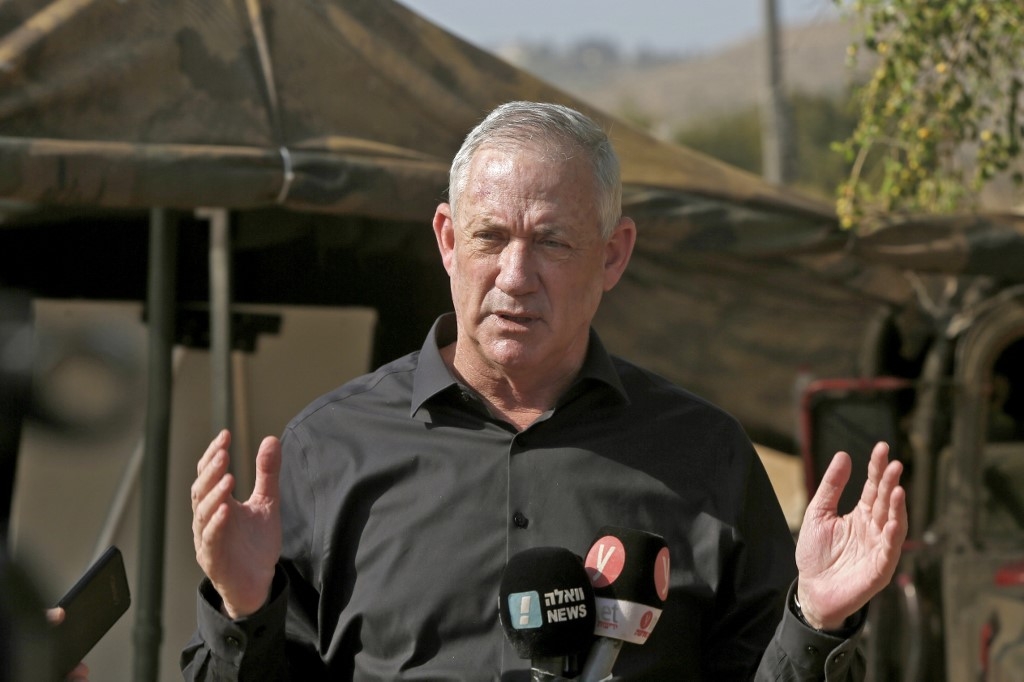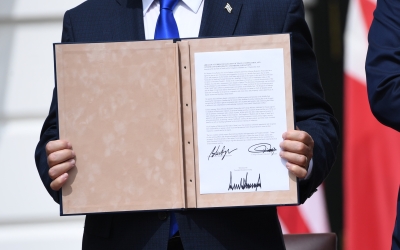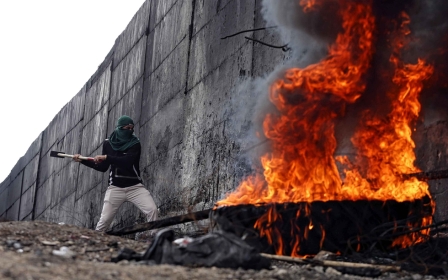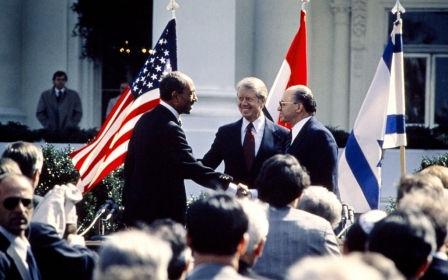Israel's Benny Gantz gives interview to Saudi newspaper

Israeli Defence Minister Benny Gantz gave an interview to Saudi newspaper Asharq al-Awsat on Thursday in which he said the whole city of Jerusalem would remain under Israeli control - but would leave room for a Palestinian capital.
Gantz is also the alternate prime minister under a unity government with sitting premier Benjamin Netanyahu, with whom he is slated to swap roles in November 2021.
'The Palestinians want and deserve an entity in which they can live independently… A state or an empire, they can call it whatever they want'
- Benny Gantz
Despite being part of the same government, Netanyahu had reportedly kept Gantz in the dark about the normalisation deal forged with the United Arab Emirates in August.
Gantz has said he found out about the establishment of official diplomatic ties with the Gulf country through media reports, and was informed by the White House last week - and not his own cabinet - about the normalisation deal between Israel and Morocco.
Meanwhile, Gantz told Asharq al-Awsat that “Jerusalem must remain united but with a place within it for a Palestinian capital”.
New MEE newsletter: Jerusalem Dispatch
Sign up to get the latest insights and analysis on Israel-Palestine, alongside Turkey Unpacked and other MEE newsletters
East Jerusalem, including the Old City, was occupied by Israel in the 1967 Middle East war. The Palestinian leadership has pushed for full rights within a sovereign state of their own, with East Jerusalem as its capital, as part of a two-state solution.
But Israel claims the entirety of the city of Jerusalem as its capital, and in 2017 US President Donald Trump broke with international consensus and recognised Israeli sovereignty over the whole city, moving the US embassy in Israel to Jerusalem.
“The Palestinians want and deserve an entity in which they can live independently… A state or an empire, they can call it whatever they want. It is their right to feel independence and have a capital,” Gantz said.
It remained unclear what exactly Gantz had in mind as a scenario in which Jerusalem remained under Israeli control while still leaving room for a Palestinian capital.
Jordan Valley
Gantz reiterated Israel's claim to need to exert control over the Jordan Valley in the occupied West Bank.
Israel has had plans on hold since July to annex almost one-third of the occupied West Bank, which includes the Jordan Valley, a strategic area rich in water and minerals along the border with Jordan.
'Israel needs the Jordan Valley for its defence needs, but it is not necessary for the area to be 30 percent of it, it could be reduced by a lot'
- Benny Gantz
“Israel needs the Jordan Valley for its defence needs, but it is not necessary for the [annexed] area to be 30 percent of it, it could be reduced by a lot,” he said.
“We want a Palestinian entity that has appropriate territorial contiguity, which makes it possible to live comfortably within it without obstacles or hindrances. What we insist on is security. We need strategic observation points for security.”
Gantz called on Palestinian Authority President Mahmoud Abbas to join the “path of peace” paved by some Arab countries.
Since August, four Arab countries have reached a normalisation agreement with Israel - the UAE, Bahrain, Sudan and most recently Morocco.
Trump, who has pushed for normalisation deals to be signed with Israel in part thanks to US incentives, said in October that there are "probably nine or ten" Arab countries that will make their ties with Israel public, including Saudi Arabia.
While Saudi Arabia's crown prince has been reportedly open to formalising relations with Israel, King Salman remains outwardly committed to the 2002 Arab Peace Initiative, which conditions regional recognition of Israel on a resolution to the occupation.
In the dark
In November, Netanyahu reportedly met with Crown Prince Mohammed bin Salman and US Secretary of State Mike Pompeo on Saudi soil near the Red Sea. Netanyahu had once again kept Gantz and his foreign ministers in the dark regarding the meeting.
Gantz nonetheless expressed positive views about normalisation.
“The path taken by the Arab world is an enormous, genuine opportunity. I truly hope to reach an accord with them, and I fully believe that without them there can be no comprehensive, full peace,” Gantz said.
'I have visited every Arab state but in secret during the performance of military missions. I dearly hope to visit them publicly in an official, friendly and peaceful manner'
- Benny Gantz
He revealed that he had travelled to most of the Arab countries secretly on military missions when he worked in the Israeli army, and that he had been part of the security team protecting the convoy of former Egyptian President Anwar Sadat when he visited Tel Aviv in 1977 - two years before Cairo became the first Arab country to formally recognise Israel.
“I have visited every Arab state but in secret during the performance of military missions. I dearly hope to visit them publicly in an official, friendly and peaceful manner,” Gantz said.
Gantz and other Israeli political parties have set the stage to dissolve Israel's parliament, the Knesset, and head for a fourth election in March amid political disagreements on the state budget.
Middle East Eye delivers independent and unrivalled coverage and analysis of the Middle East, North Africa and beyond. To learn more about republishing this content and the associated fees, please fill out this form. More about MEE can be found here.





